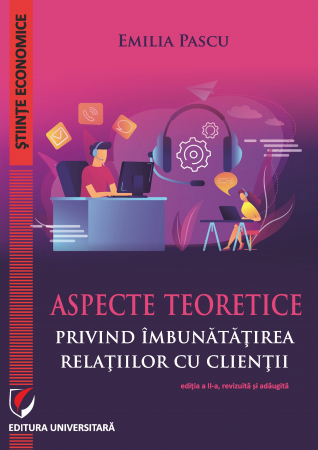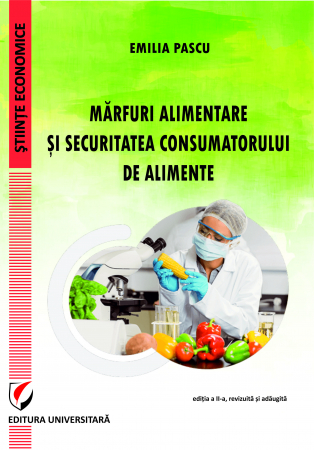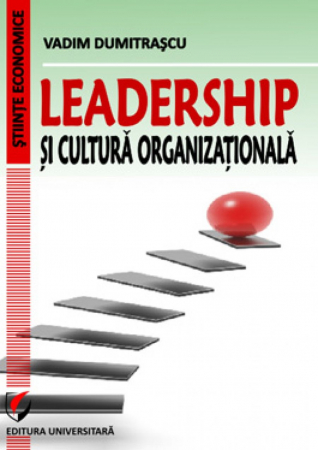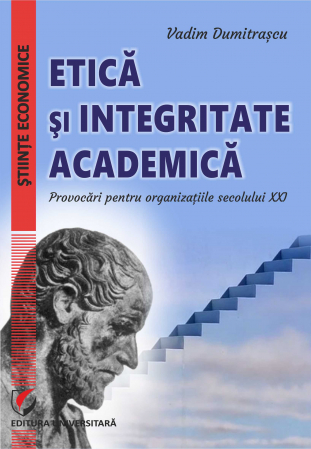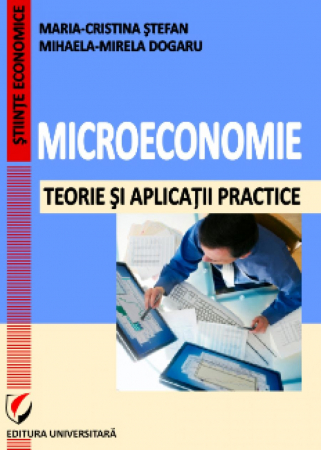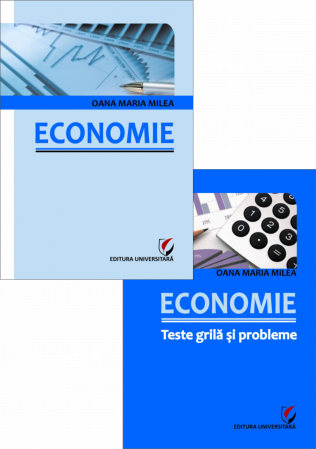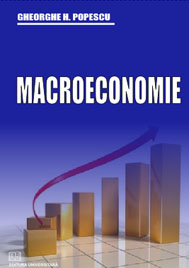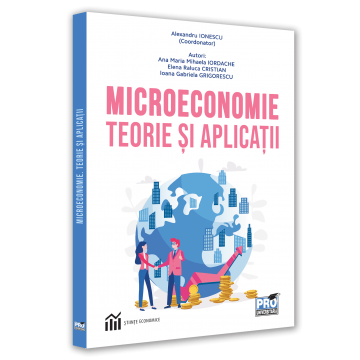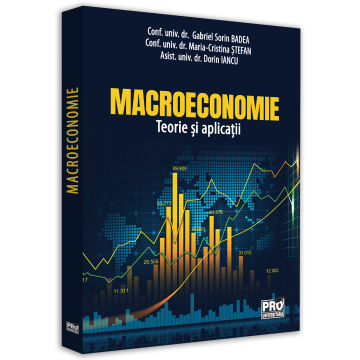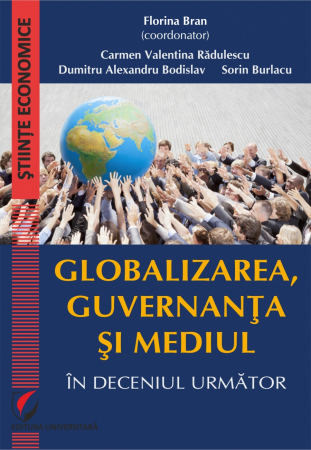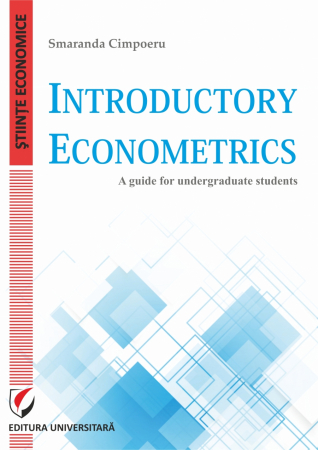6359.png) Research on economic growth and business development in the context of digitalization - Ane-Mari Androniceanu-Niculescu
Research on economic growth and business development in the context of digitalization - Ane-Mari Androniceanu-Niculescu
Publisher: Editura Universitara
Author: Ane-Mari Androniceanu-Niculescu
Edition: I
Pages: 166
Publisher year: 2023
ISBN: 978-606-28-1629-2
DOI: https://doi.org/10.5682/9786062816292
- Description
- Download (1)
- Authors
- Content
- More details
- Reviews (0)
Economic growth, development, circular economy, digitization and artificial intelligence are presented, explained and analyzed in different states of the European Union, including Romania.
The research was carried out with a diversified methodological tool, selected from several fields: economics, statistics, econometrics and artificial intelligence. The main research methods and software used were: Principal Component Analysis, Canonical Correlation Analysis, IBM Statistical Package for the Social Sciences Statistics 25TM (SPSS – Statistical Program for Social Sciences), Deep Learning Method, Autoregressive Distributed Lag Models, other analysis and prediction methods. In the research process, neural networks combined with principal component analysis were trained to determine a new index, called the digital economy and society index for each of the 27 states in the European Union.
The scientific value and the main contributions of the author of this work to theory and practice in the economic field, in general and in that of management at the macro and microeconomic level, in particular, can be found in the research results presented in the work, among which the following can be highlighted:
New models of economic and econometric analysis, which contain relevant variables for economic growth and sustainable development, in the context of digitization and the acceleration of the integration of artificial intelligence applications in various business fields;
New models of research and analysis of the circular economy and the level of sustainable and sustainable development in the European business environment;
New experimental learning models based on methods from the field of artificial intelligence, applied in different states of the European Union, including Romania;
Original models for analysis and prediction of economic growth and development in Romania, in the context of current digital changes and transformations;
New specific indices in the field of knowledge for the correlative evaluation, in the dynamics over time series of business growth and development, in the context of complex digital transformations in the main fields studied.
The work is addressed both to researchers from different fields (economics, environment, sustainable development, artificial intelligence, etc.) as well as to interested representatives from the business environment, who are aware of the importance of knowledge and predictions in the context of the growth and development of the sustainable and sustainable intelligent business sector in a increasingly digitized and complex global environment.
-
Research on economic growth and business development in the context of digitalization
Download
Introduction / 13
PART I. THE CURRENT STATE OF KNOWLEDGE REGARDING ECONOMIC GROWTH AND DEVELOPMENT, CIRCULAR ECONOMY AND BUSINESS DIGITALIZATION / 19
Chapter 1. Economic growth in specialized literature / 21
1.1. The concept of economic growth / 21
1.2. The main theories and models of economic growth / 25
1.3. Economic growth in the context of digitization / 31
Chapter 2. Economic development: concept and business approach models / 37
2.1. The concept of economic development and the main models / 37
2.1.1. The centralized planning model / 40
2.1.2. Quasi‑statist and neocorporatist models / 40
2.1.3. The neoclassical model / 41
2.1.4. The free market economy model / 42
2.1.5. The new development model centered on digital technology and biotechnology / 44
2.2. Economic and social development in the context of business digitalization / 45
Chapter 3. Circular economy: content and characteristics / 48
3.1. Circular economy: the main schools of thought and specific approaches / 48
3.2. Definition of the circular economy, its main components and basic principles / 52
3.3. The impact of the circular economy on growth and sustainable development / 54
3.4. The main benefits of the circular economy model / 54
3.5. The main barriers in the implementation of the circular economy model / 57
Chapter 4. Business digitization and the digital economy / 59
4.1. Digitization: content and particularities / 59
4.2. Digital economy: definition and particularities / 61
4.3. The advantages and implications of digitization in the economy / 64
PART II‑A. EMPIRICAL RESEARCH ON BUSINESS DEVELOPMENT IN THE STATES OF THE EUROPEAN UNION IN THE CONTEXT OF THE CIRCULAR ECONOMY AND DIGITALIZATION / 69
Chapter 5. Econometric research on economic growth and the circular economy in the states of the European Union / 71
5.1. The purpose, specific objectives, hypotheses and research variables / 71
5.2. Econometric models / 73
5.3. Research results and their analysis / 74
5.4. The implications of research results in economic policies / 78
5.5. Research conclusions / 79
Chapter 6. Research based on the correlative approach to digitalization and economic growth / 80
6.1. The purpose, objectives, hypotheses and variables of the research / 80
6.2. Analysis of canonical correlations and the multivariate multiple regression econometric model / 81
6.3. Research results and their analysis / 84
6.4. Research conclusions / 88
Chapter 7. Complex research on the interdependencies between economic growth, energy consumption and environmental pollution in the states of the European Union / 89
7.1. Research purpose, specific objectives, research hypotheses and variables / 89
7.2. Research methodology and its relevance / 92
7.3. Research results and their analysis / 95
7.4. Research conclusions / 108
PART III‑A. CORRELATED RESEARCH ON DIGITALIZATION AND ECONOMIC GROWTH, CIRCULAR ECONOMY AND BUSINESS DEVELOPMENT USING ARTIFICIAL INTELLIGENCE AND PREDICTION METHODS / 111
Chapter 8. Research on digitization and economic growth using neural network architectures / 113
8.1. The purpose of the research, specific objectives, hypotheses and research variables / 113
8.2. Research methods and methodology / 114
8.3. Research results and analysis / 116
8.4. Research conclusions / 123
Chapter 9. Integrated econometric model of correlative analysis and prediction for Romania regarding economic growth, circular economy and business development in the context of digitalization / 124
9.1. The purpose, objectives, research hypotheses and variables / 124
9.2. Presentation and explanation of research methods and methodology / 126
9.2.1. Distributed autoregressive models / 126
9.2.2. The model for error correction / 127
9.2.3. Model Crystal Ball / 128
9.2.4. Research methodology / 130
9.3. Research results and analysis / 131
9.4. Predictions regarding the evolution of research variables in Romania using Crystal Ball / 139
9.5. Research conclusions / 144
PART IV‑A. RESEARCHERS' CONCLUSIONS / 145
Bibliography / 149
The work is structured in four parts and contains nine chapters. The theoretical aspects are in the first part, i.e. in chapters 1,2,3,4, and the applied researches are included in chapters 5,6,7 which form the second part of the work, followed by chapters 8 and 9 which make up the part of third. The last part, the fourth, contains the conclusions of the researches carried out. In the four chapters of the first part, the basic notions, the models and their specific approaches are presented and analyzed. Chapter 5 contains an econometric research centered on the Tobit Model regarding economic growth and the circular economy in the states of the European Union, in which the emphasis was placed on the correlations between the research variables and on the causal relationship between them, using established tests in the field of statistical analysis . Chapter 6 integrates a correlative research on digitization and economic growth. For this, the Canonical Correlation Analysis method was used. Thus, a multiple regression model was developed with which the interdependencies between the research variables were analyzed. The research results were tested using the Statistical Platform for Social Sciences (SPSS), the Pillai and Hotelling tests and the Wilk criteria, in order to highlight the positive and statistically significant relationship between the specific variables for the two parameters on which the research was carried out. Chapter 7 integrates a broad and complex research on economic growth, circular economy, energy consumption and development, conducted through eleven relevant research variables. The originality of the scientific research carried out consisted both in the approach of interdependence and the impact of economic variables on the environment and development, as well as in the development of a new composite index, created to determine and compare the EU states and the impact of economic growth on energy consumption, development and environmental protection in last years. The research methods used were: Principal Components Analysis and SPSS. Chapter 8 includes a correlative research about digitalization and economic growth, in which, for the first time in the specialized literature, methods from the field of artificial intelligence (Deep Learning Method), respectively Neural Network Architectures, were used to analyze the research variables. The results of the research were processed using the Principal Components Analysis method, which helped highlight the way digitalization and economic growth have evolved in the EU states and the pace at which the changes took place. Chapter 9 contains an interdisciplinary and integrated research on economic growth, circular economy, development and digitalization in Romania, based on an integrated econometric model of analysis and prediction. The analysis was developed over a period of twenty years using the Distributed Autoregressive Model and the Error Correction Model and was followed by a prediction for eight years of growth and development in Romania, using the specific indicators processed using the Crystal method Ball.
The work is addressed both to researchers from different fields (economics, environment, sustainable development, artificial intelligence, etc.) as well as to interested representatives from the business environment who are aware of the importance of knowledge and predictions in the context of the growth and development of the sustainable and sustainable intelligent business sector in an environment complex digital.
Customer Support Monday - Friday, between 8.00 - 16.00
0745 200 718 0745 200 357 comenzi@editurauniversitara.ro
![Research on economic growth and business development in the context of digitalization - Ane-Mari Androniceanu-Niculescu [1] Research on economic growth and business development in the context of digitalization - Ane-Mari Androniceanu-Niculescu [1]](https://gomagcdn.ro/domains/editurauniversitara.ro/files/product/large/cercetari-privind-cresterea-economica-si-dezvoltarea-afacerilor-in-contextul-digitalizarii-388486.jpg)

